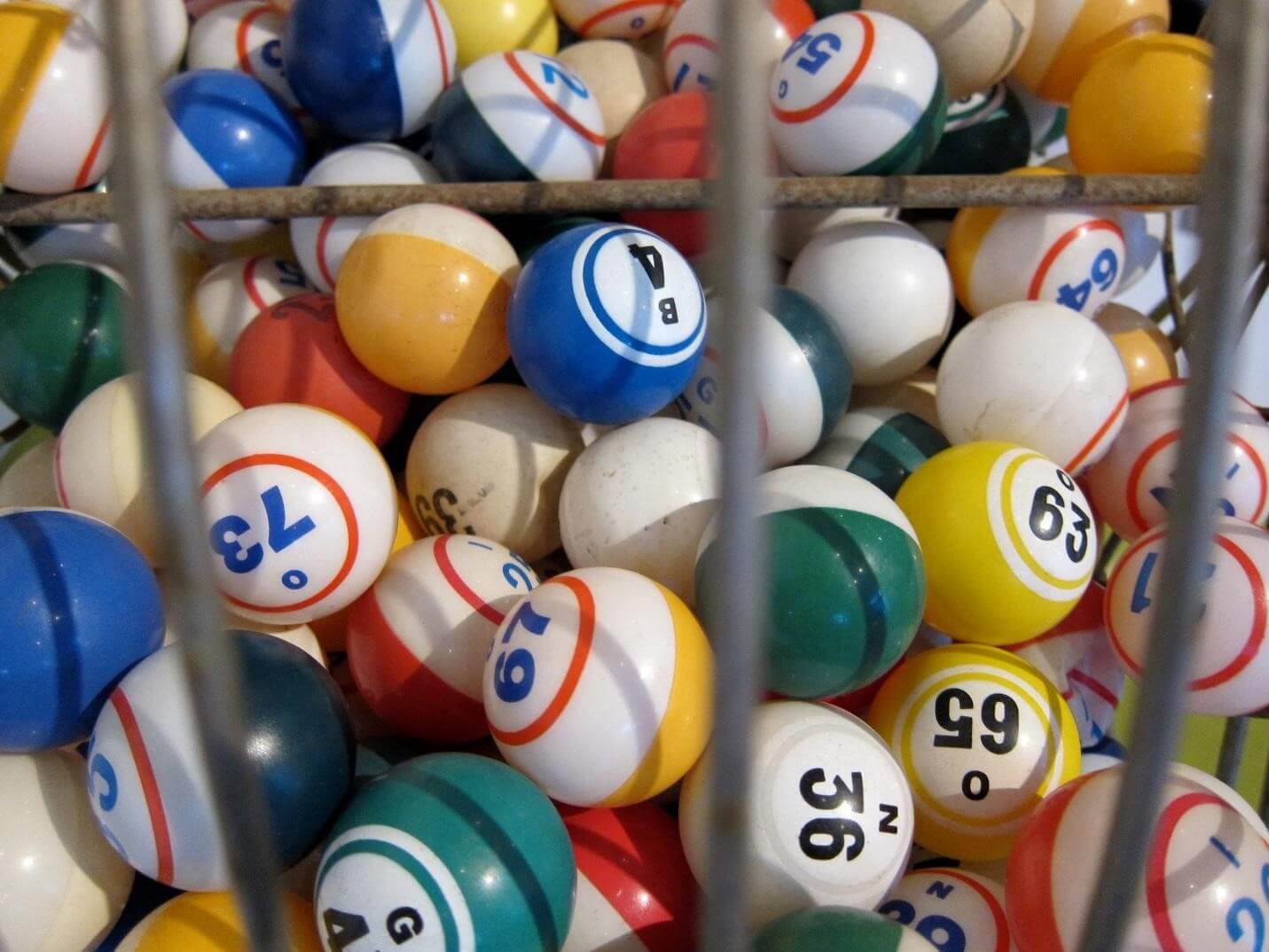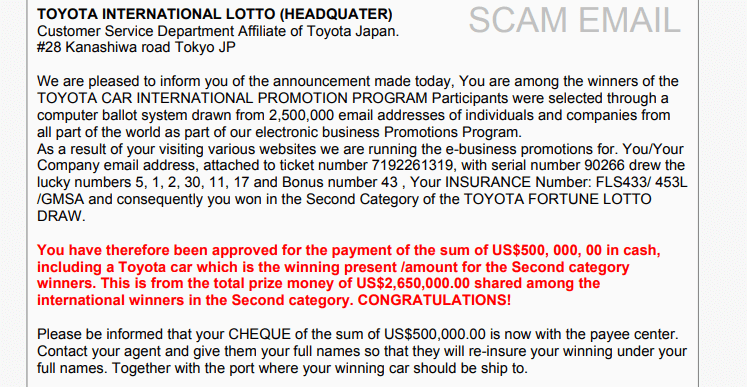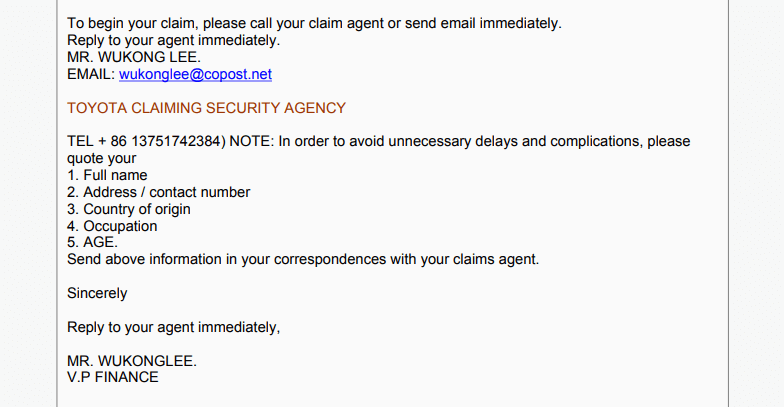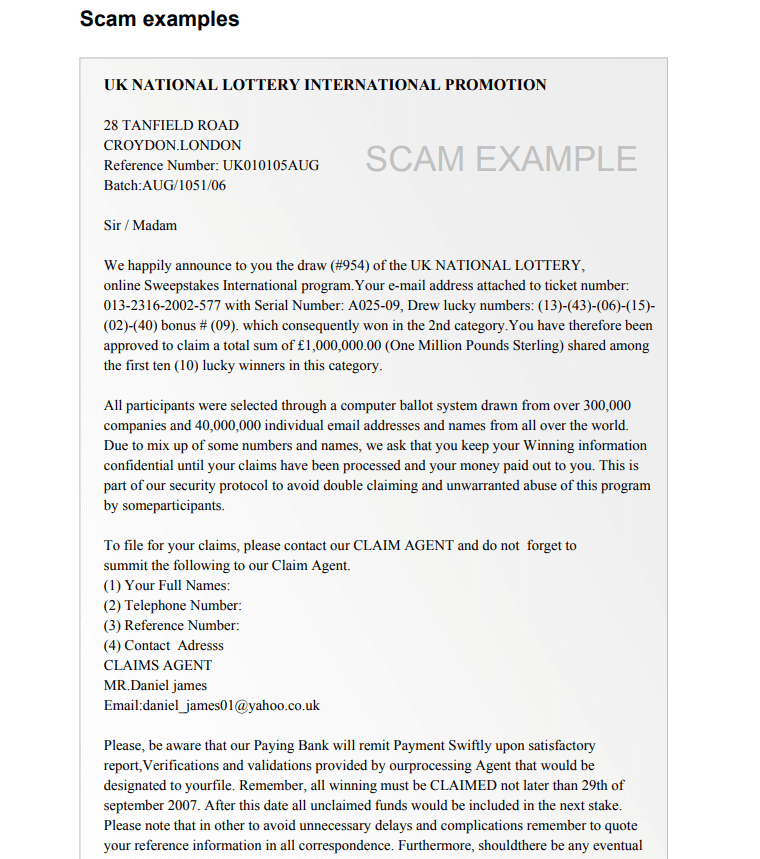It all sounds like a fairytale – somebody informed you that you won millions of dollars on the lottery. However, there are some conditions that you need to fulfill, and that seems weird. Is it possible that you are the victim of a lottery scam?
In this article, we are focusing on online lottery scams and everything you should know about them. Apart from covering the basics, we will go through the warning signs and tips on avoiding scams!
What is an Online Lottery Scam?
An online lottery scam is when someone abuses the lotto system to try and extort money or sensitive data from you. That data can include personal and financial information to access your bank accounts, or they might try to make you send them the money yourself.
Scammers send their e-mails and messages to thousands of customers, and they can profit from managing to scam only a couple. They present to you the idea that you won a huge jackpot, and the only thing you should do is pay a small sum of money to claim it. However, there is no jackpot involved, and the cash you paid is hard to be recovered.
That is why you should always be on the lookout for potential lottery scams. We will talk about how you can protect yourself in this article.
Is it Safe to Play Online Lottery?
Let’s clarify something – playing the online lottery is perfectly safe. Millions of people from around the world are playing lotto online. You can feel free to join them and purchase lottery tickets today.
The only thing to pay attention to is that you should stick to reputable providers and lotteries. When it comes to lottery games that you should play, stick to the famous ones. Those could include transnational games like Eurojackpot, but also national lotteries like Mega Sena and Lotto 6/49.
The easiest way to play multiple lotteries is to find an online lottery website. You want to stick to reputable platforms all the time. As long as you do that, it should be perfectly safe to play the online lottery.
6 Famous Lottery Scandals
You can find a long list of lottery scandals and scams in the last several decades. We tried to single out some of the most interesting stories – check them out below!
A Strike of Justice

Source: Pixabay
An interesting story about justice comes to us from Canada. An older man who purchased tickets for multiple draws of Lotto 6/49 came to a gas station to check if he won anything. There were no winnings, but the worker at the station noticed that the ticket was for multiple draws. That is why he kept the ticket without telling the rightful owner.
Once the older man noticed that he had no ticket, he bought a new one with the same numbers. He played those numbers every week, and it wasn’t hard to remember. During the draw, that was the winning combination, which means they both won the jackpot.
After they appeared to claim $90,000 each, the lottery thought something was strange. They established who the real ticket owner is, and both tickets were awarded to that man. The guy from the gas station didn’t win anything, while he took home $180,000 – double more than he expected!
Ontario Lottery Scandal

Source: Wikimedia
Here is another story that comes from Canada, and it involves Ontario Lottery and lotto vendors. The Chung family owned a store where they sold lottery tickets. However, when someone would come with a winning ticket, they would say there is no win while keeping the ticket. After time passed, they would claim it and take the money.
That happened for years, but the biggest problem was 2003 when the Super 7 grand prize was awarded. The reward was $12.5 million, and Chungs applied the same recipe. They waited for two months to claim the ticket, and even though the officials found that weird, they received the money anyway.
However, years after that, the Ontario Police launched an investigation into the lottery vendors who claimed an unusually large number of tickets. The case got media attention, and the fraud was revealed.
It took until 2011 to find the real winners of the jackpot from 2003. The Ontario Lottery did the right thing and paid them the entire prize plus interest. As for the Chungs, they were charged with fraud.
Chinese Lottery Fraud

Source: Listverse
A big lottery fraud occurred in China in 2005. Zhao Liqun worked as a lottery agent and found a flaw in the system. He could print a ticket with the winning numbers a couple of minutes after they were drawn. Liqun printed a large number of these tickets and asked his family to claim them so that it won’t be suspicious.
Despite that, the scam was uncovered, and they arrested Liqun. It is believed that he earned about $3.8 million through this scam, but he is now spending his life in prison.
Weighted Lottery Balls

Source: Wikimedia
It was in the 1980s when Nick Perry came up as a plan for weighted lottery balls. He was the Philadelphia lottery host, so it wasn’t a problem to switch the balls. The idea worked because he had the winning ticket, but the authorities investigated the unusual pattern.
Although he never received the prize, they never managed to convict Perry. He remained a free man until he died in 2003.
Eddie Tipton and His "Reliable Software"

Source: Casino.org
Eddie Tipton designed the software that the Multi-State Lottery Association used during the 2010s. However, a small program was installed within the software to predict the winning numbers.
Tipton pulled this scam for a long time and received much money by claiming various prizes on several lotteries. However, he made a mistake and was arrested. MSLA changed the software at that point.
Other Scams
Here are some other examples of scams:
- The Triple Six Fix – have you ever watched the movie, Lucky Numbers? It is based on a lottery scam, and Lisa Kudrow and John Travolta were the main protagonists in the movie.
- Unclaimed prizes – in 1988, a computer expert Henry Rich worked on the software that Pennsylvania Lottery used. He could access the list of unclaimed prizes, which he used to forge the ticket. The police uncovered the scam when his friend came to claim the ticket.
- Stolen by the security – a member of the Arkansas Scholarship Lottery’s security stole lottery scratch tickets. It is believed he did that from 2009 to 2012 and claimed more than $500K. He was caught and plead guilty, which granted him a lower sentence of three years in prison.
How to Identify an Online Lottery Scam - Warning Signs
Is it possible to recognize an online lottery scam? Although the scammers are going the extra mile to trick you, there are ways to identify their actions.
Here are some warning signs to consider:
- Somebody offers you to purchase a lottery ticket with a guaranteed win. Always remember no one can promise you any winnings because lotto is a luck-based game.
- You are the winner chosen by “random,” and they claim the offer is “legit.” If you didn’t participate in a contest, you can’t win it. It is as simple as that.

Source: SRA
- You need to pay something upfront. Whether it is purchasing a ticket or paying alleged taxes, never pay anything before getting your prize.
- They are asking you for personal or financial information. You should never provide personal details, credit card, or bank account info to strangers and unknown parties.

Source: SRA
- The scammers want to meet and say that you should pay them in person. Avoid meeting with unknown people since that might be a setup for a robbery.
10 Tips to Avoid an Online Lottery Scam
It’s always better to be safe than sorry, and that rule also applies to lottery scams. Take a look at expert tips that should help you avoid scams in the online lotto world!
1. You Can't Win Lottery If You Didn't Buy a Ticket
There is a famous joke about a guy who had been praying for years to win the lottery jackpot. He prayed every night for years until God sent him a message, “you need to buy a ticket first!”

Source: SRA
You can’t expect to win anything if you didn’t purchase a ticket. That should be the first sign that someone is trying to scam you. The lottery might be familiar to you, such as US Powerball. You might even play it occasionally, but you know that you missed buying the tickets for the last draw. If you don’t have active tickets, the odds are you are not the winner, but a scam victim.
2. Check the Rules of the Lottery
If it is a scam, you will usually receive a letter, e-mail, or cellphone message that you are the winner. But do you think that is how the lotteries inform their winners?
First of all, you don’t leave an e-mail address or mobile phone number when buying a lottery ticket. The usual way it works is that you have a certain time from the drawing date to claim your prize. If the reward is large, you might need to head to the lottery offices to claim it personally.
You can check all this in the rules of that specific lottery. Head to their official website and look for the terms and conditions. That will tell you more about the process of how to claim the rewards, which should confirm that the e-mail you received from that random address is a scam.
3. They Are Asking for Upfront Fees When Claiming the Prize
Lotteries never work that way. If anyone asks you to pay for something to receive another thing in return, don’t do it. Many scammers send you an e-mail where they tell you to pay $100 so that they can send you a winning lottery ticket of $10,000. But as soon as you send the money, you will never hear from them again.
This is a tactic that the scammers have used for years. You might have heard about the famous Nigerian scams with the money that your distant cousin left you in a will trapped in a bank overseas. A similar concept is applied to the lottery. A legit online lottery provider will never ask you for money to release a reward.
4. Check Can Be Fake - Here is How to Confirm
Although they are not as popular as before, checks are still present as a transaction method. You might receive a prize check that you allegedly won in the lottery or sweepstakes. The check might involve rewiring back to them a small portion of the winning amount.
Once you head to the bank, they might even issue the money because it takes weeks to discover the check is a fraud. However, you don’t get your money back, and the bank doesn’t compensate for the losses because the check you used is fake.
Here are some ways how you can confirm the check is fake:
- Call the bank – never use the number provided in the e-mail because it might be a part of the scam. Instead, check out which bank allegedly issued the check, and find the contact phone on their official website.
- Visit the bank – if there is a local branch of that bank, you can also visit it.
- Check the lottery rules – you can visit the lotto website and see if sending rewards via check is according to their rules.
- Analyze all details on the check – more often than not, the scammers might make typos or have some inconsistencies compared to a legit check.
5. The E-mail Address Reveals the Scammer

Source: Colorado Lottery
Here is one of the bulletproof ways to reveal the scammer – check out the e-mail address sending you the prize notification. If you get an e-mail from the lottery, it will always be sent from their official domain. The same applies to the best online lottery websites. For example, if The Lotter sends you an e-mail, you will always receive it from an address like “xx@thelotter.com.”
Scammers might try to replicate this address, so make sure to examine the domain closely. They might use “xx@thelotterjackpot.com” or anything like that. However, if the domain isn’t identical to the official one, you can be pretty sure that it is a scam.
6. Look for Typos and Unprofessionalism

Source: RIPANDSCAM
Do you believe that the creators of EuroMillions would make a typo while informing you of a huge prize? Those are reputable companies running lotteries with a long tradition, and they don’t make such mistakes.
It is why you want to check for typos and other signs of unprofessionalism in the e-mail. It might be that they used different fonts, made spelling errors, didn’t type your name right, etc. If anything sounds or looks weird, it should be a warning sign of a scam.
7. Always Stick to Reputable Oline Lottery Sites
The best way to avoid any foul play is to purchase lottery tickets online via reputable providers. You can choose from a long list of excellent sites, such as LottoAgent, LottoSmile, and WinTrillions. These operators allow you to buy tickets for many national and transnational lotteries in a single place.
Alternatively, you can also buy tickets from the official website of the organization. That is another way to be certain that nobody would steal away your prize.
8. Nobody Can Guarantee You to Win
The lottery is all about who has the most luck. There are tips that can help you to increase your odds of winning, but no guarantee exists. If you receive an e-mail about how someone guarantees that you will win, you can rest assured it is a scam.
For example, you could get an e-mail to join an unknown syndicate with the promised winnings. The odds are they only want to take your money and don’t plan on paying you a single cent. It is why you should find a trustworthy lottery syndicate and stick to that strategy.
9. Don't Be Fooled by "Blackmail"
Many scammers use the tactic of “blackmail.” For example, they might inform you that you “won a jackpot,” but tell you that you have two days to pay the upfront fee to claim the prize. If you miss the deadline, they claim they will sue you, or that you will have to pay a huge amount.
No lottery works like that, so don’t let these mails scare you. Use the information from other tips (sender’s e-mail, etc.) or contact the actual lottery to confirm it is all a fraud. Even if you did win anything, no lottery would sue you if you don’t claim your prize.
10. Why Would Anyone Sell a Winning Ticket?
Here is another popular scam mechanism – someone might inform you that they want to sell you a winning ticket. It only takes common sense to consider that this isn’t legit because why would anyone sell their winning ticket?
The story might be they cannot claim it because they live overseas. However, even if that is the case, why would they sell it to a random person (you)? Eventually, we come down to what we mentioned in previous tips – you should never pay anything upfront to claim a lottery prize. If someone asks you to do that, the odds are everything is a scam.
What to Do If You Have Been Scammed?
If you were the victim of a scam, there are some things that you can do. However, we regret to tell you that most people don’t succeed in recovering their funds. That doesn’t mean that you shouldn’t try.
The first thing you want to do is to report everything to the authorities. If there is a local branch for cybercrime, you can consider heading there. Alternatively, if you believe it was an international scam, head to econsumer.gov. This website gathers 35 agencies from all parts of the world, and they might help you recover funds.
Always remember that the more information you provide, the more odds that your funds will be recovered.
FAQ
Q: I received a notification to claim a lottery jackpot by paying a small amount upfront. Should I do that?
A: No, you should never pay a single cent to anyone asking for an upfront free. Lotteries don’t charge winners who want to claim their prizes, which means the letter’s sender is probably trying to scam you.
Q: What if a winning notification e-mail sends me to a website?
A: You want to check the address of the website. The odds are you will confirm it is not the same as the official lottery’s site address. If you notice it is not an official lotto site, that means both the e-mail and that address are a part of the scam.
Q: The lottery scammers are threatening to report me to authorities. Can they do that?
A: Always remember that scammers are criminals, and not you. They are probably only trying to scare you and extort the money from you. You can ignore their threats, or even report the incident to the authorities yourself.
Final Thoughts
Unfortunately, lottery scammers are going to great lengths to trick you into paying them money. That is why it is critical to be careful with all the e-mails you are receiving. When it comes to the lottery, you should stick to reputable online lotto sites, and you should be safe. Always remember that nobody can guarantee you a win, and you shouldn’t pay anything upfront. If you notice anything suspicious, don’t hesitate to report everything to authorities right away.
- By Liam Wilson, LotteryNGo